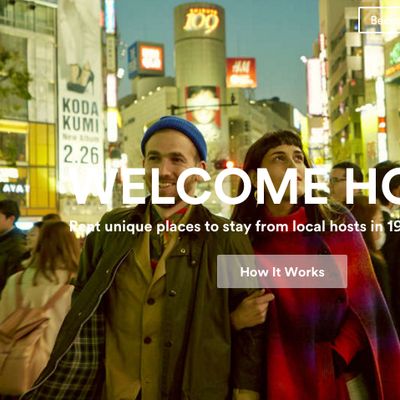
Writer and editor Zak Stone’s father died while staying at an Airbnb when a branch holding a rope swing snapped. What did Airbnb do about it? Not much, Stone explains in a harrowing Matter feature — the company disclaims all liability for accidents that might happen when guests stays at rooms hosted through its platform. If you were waiting for something terrible to happen in the legally dubious world of Airbnb rentals, Stone writes, “My family’s story — a private matter until now — is that terrible something.”
Stone’s long article examines what happens after that “terrible something” occurs. Though he and his family are lucky enough to secure a settlement from the homeowner’s insurance of the Airbnb hosts, most insurance policies don’t cover commercial activity. He tracks down the story of a woman who apparently died of carbon monoxide poisoning while staying at an unregulated Airbnb in Taiwan, learning that her family apparently accepted a $2 million settlement from the company “for humanitarian reasons” only — Airbnb insisted it was not liable.
Airbnb isn’t the only “sharing economy” start-up to be facing a backlash as it becomes clear that the “platforms” that allow people to put unused assets like cars and apartments on a digital market can’t and won’t accept responsibility for customers’ safety. The website Who’s Driving You? keeps an extensive list of alleged assault, rape, and robbery incidents reported by Uber users.
The problem for the start-ups, and their investors, is that ensuring that customers are safe and liabilities are clear is expensive. At the competitive rates they have established, these companies simply can’t afford to ensure users’ basic security. “Were Airbnb to invest in safety requirements by offering home inspections or by analyzing photo content to target higher-risk properties … such a program could be far more costly, and might jeopardize Airbnb’s covetable neutrality as a platform,” Stone writes. “Amateur innkeepers who couldn’t be trusted with the banal task of photographing and marketing their properties are expected to excel at hospitality’s most important rule: keeping guests safe and alive.”
What’s more, Uber and Airbnb are fighting for even less regulation in the way they deal with their users and workers. Uber wants to keep its drivers as contract workers rather than employees, further distancing them from being implicated in the drivers’ actions. (New drivers undergo background checks, but their practices are shoddy, failing to detect 25 drivers with criminal backgrounds.) Airbnb recently defeated Proposition F, a San Francisco law that would have limited its rentals while also ensuring they are up to city code.
Hotels might be stodgier, less convenient, and more expensive than crashing in someone’s spare room, but they’re also certified by inspectors and legally culpable when things go wrong. Stability can be a good thing.





























